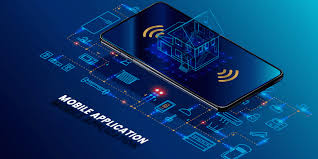How Software Development 2025 Will Drive Transformation Across Industries
software development 2025

Software Development 2025 is expected to bring about great innovation and development as we look to the future. Particularly in sectors like healthcare, banking, retail, logistics, and automotive, new technologies like AI, blockchain, and quantum computing are poised to change the way firms function completely. This blog examines the main trends and how companies may take advantage of these developments to remain inventive and competitive in a world that is becoming progressively digital.
What New Things to Expect in Software Development in 2025?
Software development will incorporate revolutionary advances by 2025, and companies must prepare for this change. These developments, which span from low-code platforms to quantum computing, will affect many different businesses and change the way companies handle operations, client engagement, and problem-solving.
-
Quantum Computing in Software Development
A highly anticipated advancement in Software Development 2025 is the application of quantum computing in real-world scenarios. Quantum computing is set to revolutionize sectors such as banking and medicine by facilitating the processing of intricate data at previously unthinkable rates. Quantum algorithms, for instance, will be useful in drug development and financial modeling since they can overcome problems that conventional computers are unable to. By 2030, quantum computing is expected to generate a $65 billion market, according to experts, demonstrating its potential across multiple industries.
-
AI and Automation in 2025
By 2025, it’s anticipated that artificial intelligence will play a bigger part in software development. AI-driven software solutions will help with testing, debugging, and performance optimization in addition to automating tedious coding activities. AI will be incorporated into development procedures, enabling companies to produce better goods faster and with less involvement from humans. Recent research indicates that by 2025, artificial intelligence (AI) will be included in over 80% of enterprise software, making it a crucial component of the digital transformation.
-
Low-Code and No-Code Platforms
Application development will become more accessible in 2025 when low-code and no-code platforms enable non-developers to construct software solutions. This change will have an impact on the retail and logistics sectors by allowing businesses to create tailored solutions without the need for a full-fledged software development team. By 2025, 70% of new applications developed by companies will employ low- or no-code technologies, predicts Forrester.
Software Development in Healthcare
Healthcare will be one of the industries most affected by Software Development 2025. New digital tools and platforms will enhance everything from diagnostics to patient data management, improving healthcare delivery and patient outcomes.
-
AI-Powered Diagnostic Tools
Artificial Intelligence can revolutionize medical diagnosis. AI will help physicians identify illnesses early and prescribe appropriate treatments by evaluating enormous volumes of patient data. This will be especially helpful in areas like oncology, where survival rates can be significantly increased by early detection. AI-powered diagnostic tools might cut diagnostic errors by as much as 30% by 2025, according to an estimate.
-
Blockchain for Data Security
It is critical to secure sensitive patient data as healthcare becomes more digitally connected. Healthcare providers will be able to securely and effectively share patient information thanks to blockchain technology, which lowers the possibility of fraud and data breaches. It will be simpler to preserve the security and integrity of health records across platforms using blockchain technology.
Finance Industry: Software Development as a Game-Changer
Software Development 2025 in the finance sector will prioritize process automation, security enhancement, and individualized service delivery. Financial institutions will protect their services and optimize their operations through the implementation of AI-driven automation and blockchain development services.
-
Blockchain for Financial Security
Blockchain technology will improve financial transaction security to a great extent, lowering fraud and opening the door for decentralized finance (DeFi) solutions. Forecasts indicate that the global blockchain industry for financial services will grow to $22.5 billion by 2026, indicating that this trend is already well-established. Blockchain will provide tamper-proof, transparent transactions by 2025 for both institutions and consumers.
-
AI-Driven Financial Services
AI will continue to automate processes such as fraud detection, risk assessment, and customer service personalization. With AI, banks will offer more efficient, real-time services, including predictive insights into customer behavior, which will drive better financial outcomes.
Retail and E-commerce: Enhanced by Software in 2025
The retail industry will undergo a major transformation through Software Development 2025, as AI, blockchain, and mobile app development become integral to improving customer experiences and streamlining supply chains.
-
AI-Powered Customer Experience
By 2025, businesses will be offering hyper-personalized shopping experiences through the use of AI to analyze consumer behavior. E-commerce systems will have the ability to predict customer preferences, suggest products, and develop customized advertising campaigns. It is anticipated that this customized experience will increase e-commerce conversion rates by 20%.
-
Smart Supply Chain Management
AI will also completely transform supply chain management by automating demand forecasting, inventory tracking, and logistics with AI-powered tools. With less waste, fewer stockouts, and faster deliveries, this technology will provide merchants with a huge competitive advantage.
Automotive Industry: Software Transforming Transportation
Software Development 2025 will play a major role in the automotive industry’s transformation. Future transportation solutions will be powered by software, from improved connections to driverless cars.
-
Autonomous Driving Software
By 2025, autonomous vehicles should be the norm thanks to AI-driven software that allows them to make decisions in real-time based on road conditions, traffic data, and vehicle-to-vehicle communication. Roads will become safer as a result of this innovation and fewer traffic accidents.
-
Vehicle Connectivity
Cars will be completely networked by 2025, utilizing Vehicle-to-Everything (V2X) communication to communicate with infrastructure, other cars, and traffic management systems. With the help of this software, drivers will be able to drive more safely, consume less fuel, and produce fewer emissions.
Conclusion
The 2025 will be a pivotal year in the history of software development, as advances in blockchain, artificial intelligence, and automation help all sectors of the economy. Enterprises that adopt these modifications will have a stronger chance of prospering in the digital age, ranging from healthcare and banking to retail and automotive. To be competitive, organizations need to be flexible and prepared to incorporate new technologies into their operations as Software Development 2025 develops further.




